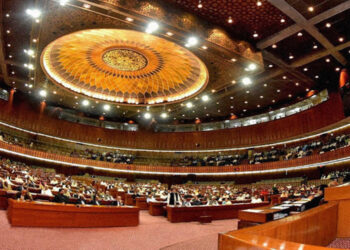CORNWALL: The Group of Seven richest democracies sought to counter China’s growing influence by offering developing nations an infrastructure plan that could rival President Xi Jinping’s multi-trillion-dollar Belt and Road initiative.
The G7, whose leaders are meeting in southwestern England, has been searching for a coherent response to the growing assertiveness of Xi after China’s surging economic and military rise over the past 40 years.
U.S. President Joe Biden and other G7 leaders hope their plan, known as the Build Back Better World (B3W) initiative, will provide a transparent infrastructure partnership to help narrow the $40 trillion needed by developing nations by 2035, the White House said.
“This is not just about confronting or taking on China,” a senior official in Biden’s administration said. “But until now we haven’t offered a positive alternative that reflects our values, our standards and our way of doing business.”
The United States later said there was a G7 consensus on the need for a shared approach to China on trade and human rights. The G7 and its allies will use the B3W initiative to mobilise private-sector capital in areas such as climate, health and health security, digital technology, and gender equity and equality, the White House added.
China’s Belt and Road Initiative (BRI) scheme, which Xi launched in 2013, involves development and investment initiatives that would stretch from Asia to Europe and beyond. More than 100 countries have signed agreements with China to cooperate in BRI projects like railways, ports, highways and other infrastructure.
READ MORE: Biden suggests plan to rival China’s Belt and Road initiative
Critics say President Xi’s plan to create a modern version of the ancient Silk Road trade route to link China with Asia, Europe and beyond is a vehicle for the expansion of Communist China. Beijing says such doubts betray the “imperial hangover” of many Western powers that humiliated China for centuries.
Leaders of the G7 – the United States, Canada, Britain, Germany, Italy, France and Japan – want to use their gathering to show the world that the richest democracies can offer an alternative to China’s growing clout.
The re-emergence of China as a leading global power is considered to be one of the most significant geopolitical events of recent times, alongside the 1991 fall of the Soviet Union that ended the Cold War.
In 1979, China had an economy that was smaller than Italy’s, but after opening to foreign investment and introducing market reforms, it has become the world’s second-largest economy and is a global leader in a range of new technologies.
According to a Refinitiv database, as of mid-last year, more than 2,600 projects at a cost of $3.7 trillion were linked to the BRI, although the Chinese foreign ministry said last June that about 20% of projects had been seriously affected by the COVID-19 pandemic.
As part of the G7 plan, the United States will work with the US Congress to supplement existing development financing and to “collectively catalyze hundreds of billions of dollars of infrastructure investment”, the White House said


































